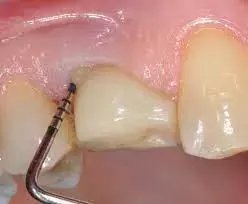- Home
- Medical news & Guidelines
- Anesthesiology
- Cardiology and CTVS
- Critical Care
- Dentistry
- Dermatology
- Diabetes and Endocrinology
- ENT
- Gastroenterology
- Medicine
- Nephrology
- Neurology
- Obstretics-Gynaecology
- Oncology
- Ophthalmology
- Orthopaedics
- Pediatrics-Neonatology
- Psychiatry
- Pulmonology
- Radiology
- Surgery
- Urology
- Laboratory Medicine
- Diet
- Nursing
- Paramedical
- Physiotherapy
- Health news
- Fact Check
- Bone Health Fact Check
- Brain Health Fact Check
- Cancer Related Fact Check
- Child Care Fact Check
- Dental and oral health fact check
- Diabetes and metabolic health fact check
- Diet and Nutrition Fact Check
- Eye and ENT Care Fact Check
- Fitness fact check
- Gut health fact check
- Heart health fact check
- Kidney health fact check
- Medical education fact check
- Men's health fact check
- Respiratory fact check
- Skin and hair care fact check
- Vaccine and Immunization fact check
- Women's health fact check
- AYUSH
- State News
- Andaman and Nicobar Islands
- Andhra Pradesh
- Arunachal Pradesh
- Assam
- Bihar
- Chandigarh
- Chattisgarh
- Dadra and Nagar Haveli
- Daman and Diu
- Delhi
- Goa
- Gujarat
- Haryana
- Himachal Pradesh
- Jammu & Kashmir
- Jharkhand
- Karnataka
- Kerala
- Ladakh
- Lakshadweep
- Madhya Pradesh
- Maharashtra
- Manipur
- Meghalaya
- Mizoram
- Nagaland
- Odisha
- Puducherry
- Punjab
- Rajasthan
- Sikkim
- Tamil Nadu
- Telangana
- Tripura
- Uttar Pradesh
- Uttrakhand
- West Bengal
- Medical Education
- Industry
Air Polishing Effective Strategy to Maintain or Improve Outcomes of Surgical Therapy for Peri-Implantitis

Air Polishing Effective Strategy to Maintain or Improve Outcomes of Surgical Therapy for Peri-Implantitis suggests a new study published in the Clinical Oral Implants Research
The aim of the present study was to evaluate the efficacy of a supportive peri-implant care (SPIC) protocol after surgical therapy of peri-implantitis, combining ultrasonic mechanical debridement and glycine powder air polishing.
Thirty subjects diagnosed with peri-implantitis and treated by means of access flap were randomized 6 months later into two different SPIC groups: the test group combined a piezoelectric ultrasonic instrumentation with a specific implant PEEK tip and glycine powder air polishing, while control group received the same ultrasonic instrumentation together with a rubber cup and a polishing paste. Patients were followed for 12 months, with intermediate SPIC visits every 3 months. Clinical, radiological, microbiological and biochemical outcome variables were registered and calculated.
Results
After 12 months of SPIC, probing depths (PD) showed a mean reduction of 0.33 ± 0.11 mm, with significant differences (p < .001) between the test (−0.84 ± 0.43 mm) and the control group (+0.18 ± 0.73 mm). Healthy peri-implant tissues defined by PD <5 mm, absence of BoP (or in only one site around the implant), and no additional bone loss (<0.5 mm), were observed at the final visit in 83% of the implants (87% in the test group and 80% in the control group, p = .255). No adverse events were reported by the subjects participating in the study.
The SPIC protocol including mechanical ultrasonic debridement and glycine powder air-polishing demonstrated significantly better efficacy in terms of PD reductions. A strict SPIC protocol can maintain for 1 year, or even improve, the results obtained after surgical treatment of peri-implantitis.
Reference:
Luengo, F., Sanz-Esporrín, J., Sanz-Sánchez, I., Solonko, M., Herrera, D., & Sanz, M. (2023). Clinical, microbiological and biochemical impact of a supportive care protocol with an air-polishing device, after surgical treatment of peri-implantitis: Randomized clinical trial. Clinical Oral Implants Research, 00, 1– 15. https://doi.org/10.1111/clr.14049
Dr. Shravani Dali has completed her BDS from Pravara institute of medical sciences, loni. Following which she extensively worked in the healthcare sector for 2+ years. She has been actively involved in writing blogs in field of health and wellness. Currently she is pursuing her Masters of public health-health administration from Tata institute of social sciences. She can be contacted at editorial@medicaldialogues.in.
Dr Kamal Kant Kohli-MBBS, DTCD- a chest specialist with more than 30 years of practice and a flair for writing clinical articles, Dr Kamal Kant Kohli joined Medical Dialogues as a Chief Editor of Medical News. Besides writing articles, as an editor, he proofreads and verifies all the medical content published on Medical Dialogues including those coming from journals, studies,medical conferences,guidelines etc. Email: drkohli@medicaldialogues.in. Contact no. 011-43720751


